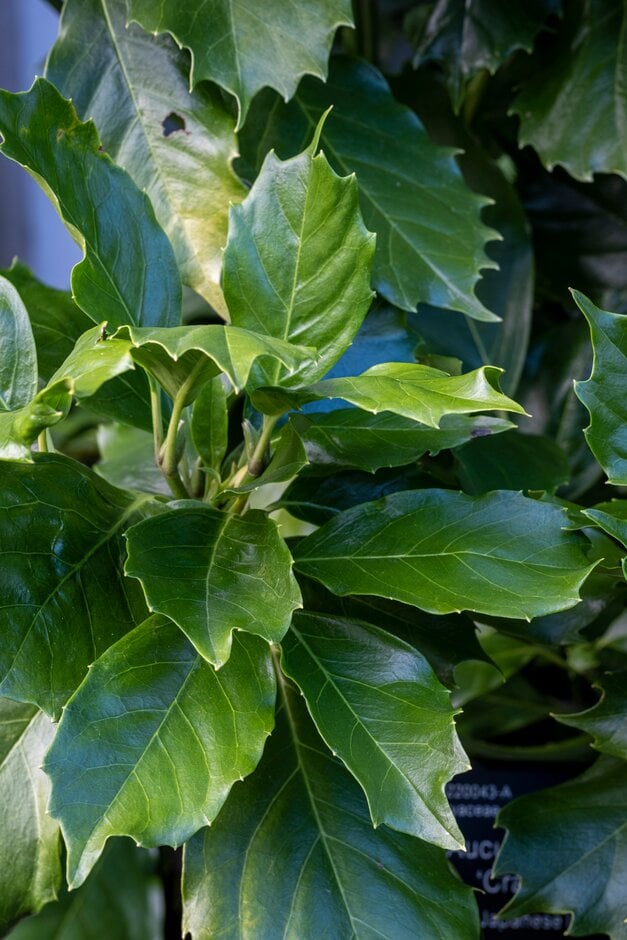Aucuba japonica 'Crassifolia' (m)
Japanese laurel 'Crassifolia'
A bushy evergreen shrub, to around 1.5m high, with upright to arching stems and broadly oval, leathery deep green leaves, coarsely toothed in the upper half. Short, upright clusters of small, reddish-purple flowers are produced in spring

Buy this plant
Size
Ultimate height
1–1.5 metresTime to ultimate height
5–10 yearsUltimate spread
1–1.5 metresGrowing conditions
Moisture
Moist but well–drained, Well–drainedpH
Acid, Alkaline, NeutralColour & scent
| Stem | Flower | Foliage | Fruit | |
| Spring | Red Purple | Green | ||
|---|---|---|---|---|
| Summer | Green | |||
| Autumn | Green | |||
| Winter | Green |
Position
- Full shade
- Full sun
- Partial shade
Aspect
East–facing or North–facing or South–facing or West–facing
Exposure
Exposed or Sheltered Hardiness
H5Botanical details
- Family
- Garryaceae
- Native to GB / Ireland
- No
- Foliage
- Evergreen
- Habit
- Bushy
- Potentially harmful
- Fruit is ornamental - not to be eaten. Wear gloves and other protective equipment when handling Pets: Fruit is ornamental - not to be eaten - see the HTA guide to potentially harmful plants for further information and useful contact numbers
- Genus
Aucuba are dioecious evergreen shrubs with simple, leathery leaves, attractively variegated in many cultivars, and small purple flowers followed on female plants by large glossy red fruit
- Name status
Accepted
How to grow
Cultivation
Will grow in almost any soil or situation except soil prone to waterlogging. Tolerates full sun, but leaves may be a lighter yellow-green. Good for difficult planting positions, tolerant of dry soil, pollution and salt winds. This is a male cultivar and does not produce berries
Propagation
Propagate by semi-ripe cuttings from late summer to autumn
Suggested planting locations and garden types
- City and courtyard gardens
- Coastal
- Cottage and informal garden
- Low Maintenance
- Hedging and screens
Pruning
Pruning group 1; trim hedges in spring; shrubs may be renovated by hard pruning in spring
Pests
Generally pest-free
Diseases
May be susceptible to honey fungus
Love gardening
Sign up to receive regular gardening tips, inspiration, offers and more
View our Privacy Policy
Get involved
The Royal Horticultural Society is the UK’s leading gardening charity. We aim to enrich everyone’s life through plants, and make the UK a greener and more beautiful place.